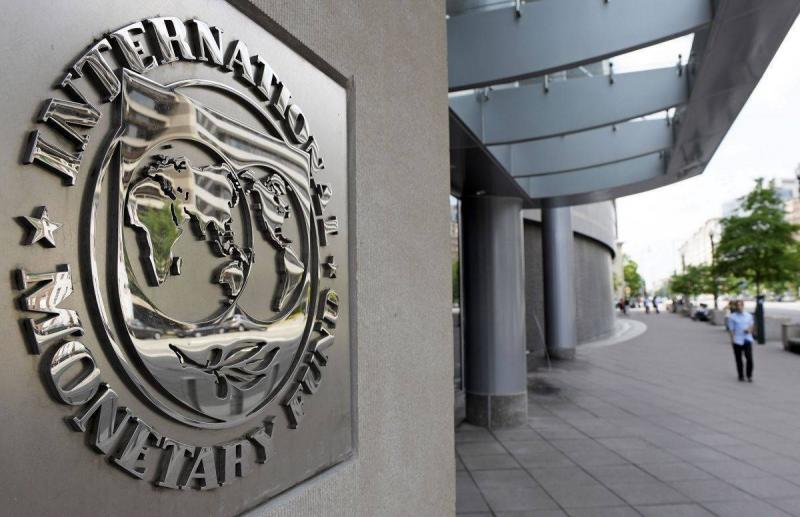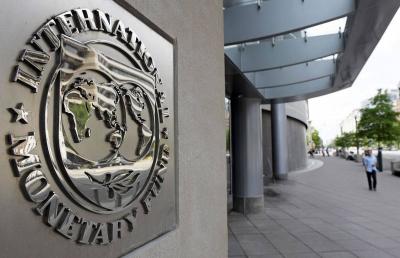The demand to involve the state in the financial gap or estimated losses of about $73 billion is a central point of contention, particularly for the International Monetary Fund (IMF), which usually refuses to invest in or sell state assets to use the proceeds for the benefit of a few in society. During the visit of the IMF delegation to Lebanon next month, it is expected that the Lebanese side, specifically the private sector, will propose the creation of a fund whose revenues would contribute to the return of deposits to their owners, a concept previously suggested by former Minister of Economy Raed Khoury.
Regarding the IMF's position on increasing its involvement in light of the Lebanese authorities' inaction on the required reforms, and the possibility of the IMF responding to the demand for the state's involvement in the losses and the benefits that will arise from it, "Nidaa El Watan" discussed these topics with Minister Khoury in the following interview:
- As the date approaches for the arrival of the IMF delegation in Lebanon, questions are increasing about the aims of the visit in March. What will be the delegation's mission according to your information?
The IMF delegation will discuss with Lebanese officials the reasons that prevented them from committing to the required reforms throughout the ten months that have elapsed since the signing of the agreement among the parties. They will also see if Lebanon will undertake the needed reforms or decide to fully disengage from the Lebanese case if the delegation feels there is no hope for progress. This atmosphere is what I gathered from my meeting with IMF representatives. Lebanon's problem is not limited only to the IMF; the country is experiencing total paralysis. The parliament cannot legislate laws due to its recurrent failure to meet quorum, and the cabinet cannot convene due to the vacancy in the presidency. This has led us to a complete standstill or what is called a "deadlock." This reality can only be broken by electing a president, after which things can move forward, leading to an agreement with the IMF, as it is a necessary step to "stand on our feet." Western countries have entrusted the IMF with the task of addressing the dilemmas of nations struggling to repay their debts, like Lebanon, which is facing financial and economic crises. The IMF is considered an essential pathway for Lebanon to reopen to foreign investments, whether in the public or private sector, regardless of the political parties' opinions. Unfortunately, as of now, there are no signs of hope for electing a president.
- Is it possible to amend the terms of the agreement reached by the working group that signed with the "IMF" in April 2022?
The IMF's management is not "harsh" in its dealings with Lebanon or in the text of the conditions. They have preconceived ideas on certain matters, but Lebanon's situation is different from that of other countries. In a meeting with IMF representatives, I asked whether they had ever encountered a country facing problems like those of Lebanon. The answer was negative regarding the issues faced by the state and the Central Bank, including the depletion of their funds and even the banks. Therefore, the IMF cannot use the same solutions applied in any other country, and the solutions offered to Lebanon must deviate from the usual frameworks. In the laws for restructuring banks and financial regularity, there is a clause regarding the write-off of deposits, at least for those exceeding $100,000. For deposits under $100,000, part of them will be repaid in Lebanese pounds at black market exchange rates, thus not all repayments will occur in cash dollars. I believe the path to solutions begins at that point. It is worth noting that in the first economic plan presented by the government, the necessity to write off deposits was proposed, while in the second plan, the state created a recovery fund to reclaim deposits. From the latter, solutions began to be suggested. However, what has been included in this fund is still insufficient after negotiations with the IMF, such as depositing part of the state budget surplus into the fund and recovering embezzled funds... Therefore, there are additional solutions to recover deposits using state assets, and on that point, the IMF has not made a final decision yet, while the door for consultation with them remains open.
- In your opinion, what are the possible solutions that could be pursued through the use of state assets?
There is a solution that could yield benefits for all parties involved. First, if we put ourselves in the position of the IMF, the depositors, the banks, and the politicians, we can implement a solution that is not of my invention but has been applied in most countries: In the 1980s, Dubai was a desert of little value, and the state owned much of the land. They decided to grant land to representatives of the private sector for free to develop and build upon... This attracted foreign investments and offered many investors land, resulting in a significant increase in the value of the land that the state still owned—100, 200, or 300 times—after the real estate prices rose due to the involvement of the private sector in the economy. The state became wealthier than before, moving from owning 100% of a project to owning 50% of hundreds of projects, which proved profitable for them.
- What about public facilities?
The Port of Beirut, for example, is a large facility extending over 2 million square meters owned by the state in the most expensive area of Lebanon. Today, it makes sense to consider relocating it or developing the ports of Tripoli or Sidon... We can open the field for the private sector to invest in the harbor land through PPP (Public-Private Partnership) to create hotels or residential centers... knowing that there is a possibility of land reclamation to expand by 500,000 square meters. If the value of a square meter is $5,000, that means $10 billion today for the entire area of the "port," despite the decline in real estate prices. After developing those areas and injecting investments, the value of the land could reach approximately $50 billion in 5 or 10 years. Accompanying this step would be the inclusion of terms in the contract; for example, if its value becomes $50 billion, the increase of $40 billion could be distributed as follows: $10 billion would go to the Recovery Deposit Fund, and $10 billion would go to the investors who injected funds. This way, the state retains ownership of 60% of the $50 billion instead of 100% (around $30 billion instead of $10 billion). According to this equation, both the state and the depositors benefit, and the IMF "relaxes" since the guarantee would now be $30 billion instead of $10 billion. The IMF fears that the state will sell its assets, jeopardizing the guarantee for the loans it provides to the country; however, the result would indeed reflect economic growth and an increase in the Gross Domestic Product (GDP)... In that case, the state would benefit in two ways: first from the increased value of its properties, and second from enhanced revenues from taxes that it collects as a result of increased employment and activated investments. The value of the deposit recovery fund or the revitalization fund could be linked to the value of the economy, allowing for deposits to be returned, even if after several years, instead of losing them entirely.
- Will the IMF be convinced to involve state assets in covering losses?
Many countries have adopted a policy of involving the private sector in state facilities, and we will also require that the private ownership of state properties results in profits, increases in property values, and achieving revenues. Those opposed to this idea rely on Lebanon's bad experience in involving the private sector in state facilities due to the lack of transparency and politicians seizing shares in them. However, the solution I propose involves engaging global companies as investors, implementing corporate governance, and bringing in global observers.




